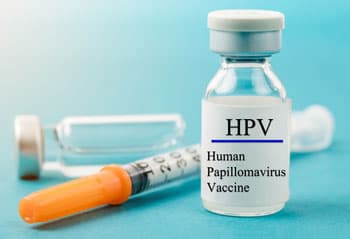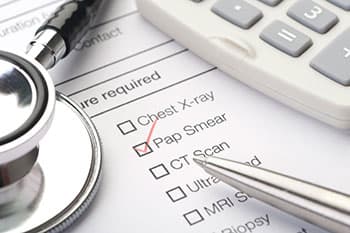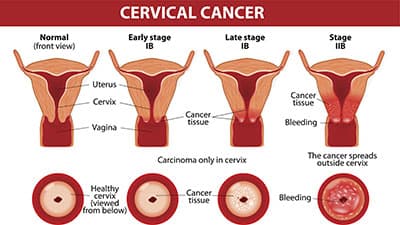
How does the Human Papillomavirus vaccine prevent cancer?
The Human Papillomavirus vaccine is considered a cervical cancer prevention vaccine. Cervical cancer is the third most common type of cancer worldwide. The human papillomavirus (HPV) infection is a major cause of cervical cancer, and HPV is preventable with this vaccine.
 What is HPV?
What is HPV?
Human Papillomavirus (HPV) is a sexually transmitted disease that affects both men and women. There are more than 100 different strains of HPV. Most people will contract HPV at some point in their lives, but it's usually not harmful unless you develop changes in your cervix called dysplasia or cervical precancers. These changes can progress to cervical cancer if left untreated.
What is cervical dysplasia?
Cervical dysplasia is a condition where cells transition from benign cells to cancerous cells; Cervical dysplasia, as mentioned, is considered a precancerous condition. It is categorized as mild, moderate, or severe. On average, it takes several years for the cells to change from mild dysplasia to cancer. However, cervical dysplasia doesn't always cause symptoms, so it's important to have regular health exams, including cervical cancer screenings and Pap smears.
HPV vaccines are designed to prevent human papillomavirus infection from certain types or strains of HPV. The vaccine has been shown to reduce the adverse effects of developing the precancerous lesions caused by HPV. It also reduces the risk of developing invasive cervical cancer in women who have already had abnormal Pap test results.

What is cervical cancer screening?
Cervical screening includes a Pap smear and a screening test for the HPV infection.
What is a Pap smear?
A Pap smear is a screening procedure used to detect abnormalities on the cervix or the opening into the uterus. Cells can also be collected at this time to perform the HPV screening test. A Pap smear can be performed at any age and is usually recommended
every three years for female adults aged 21 to 65.
What are the risks of developing cervical cancer?
Other risk factors include:
- Multiple pregnancies before the age of 25
- Being infected with HPV
- Smoking cigarettes
- Having genital warts
- Having sexual contact or sexual intercourse without protection

Who should get the human papillomavirus vaccination?
Vaccines are intended to prevent infection. Once someone has the HPV infection, the vaccine dose can be ineffective. For this reason, the current recommendations or time frame for vaccination established by the Centers for Disease Control and Prevention (CDC) for the HPV vaccine is between the ages of 11 and 12. However, the vaccine series can be administered as early as age 9.
Individuals aged 15 to 26 who still wish to receive the vaccine should receive three doses of the vaccine to complete the series and achieve an effective vaccine dose.
What are some concerns and possible side effects of this vaccination?
Some parents worry about early sexual activity. Studies have found that the age at which a child receives the vaccination series is unrelated to when they initiate sexual activity. No link between sexual activity and vaccine administration has been found.
The most common side effect is a sore arm at the injection site. Patients may also experience nausea, headache, and fever. Other less common adverse reactions include swelling or redness around the injection site, dizziness, joint pain, and muscle aches. Rarely an allergic reaction can occur.
Source: Mayo Clinic MayoClinic.org
Contact your Health Care Provider for medical advice and more information on this and other vaccines.
Cancer Center Quick Links
